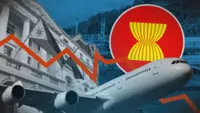Study will determine support measures for the govt to implement
PETALING JAYA: An in-depth study is being carried out on the impact of US tariffs on key sectors which will be used to determine the appropriate support measures, says the Prime Minister.
Follow us on our official WhatsApp channel for breaking news alerts and key updates!
Thank you for your report!





